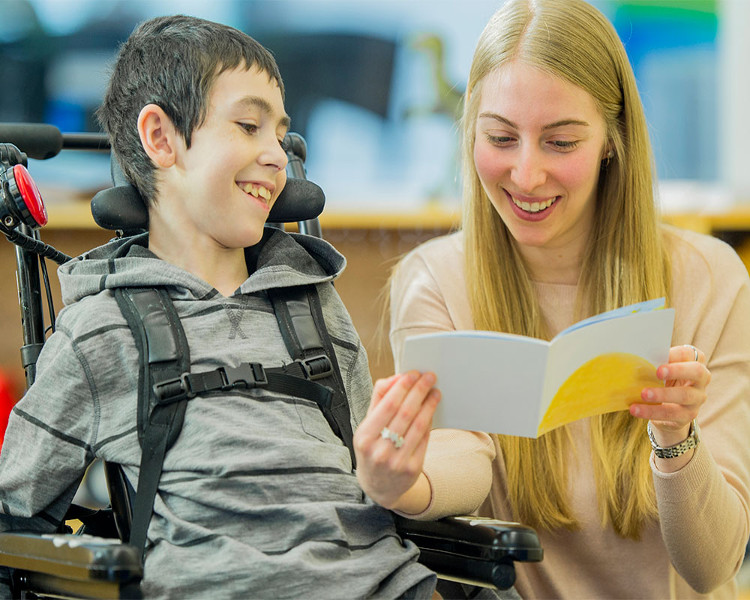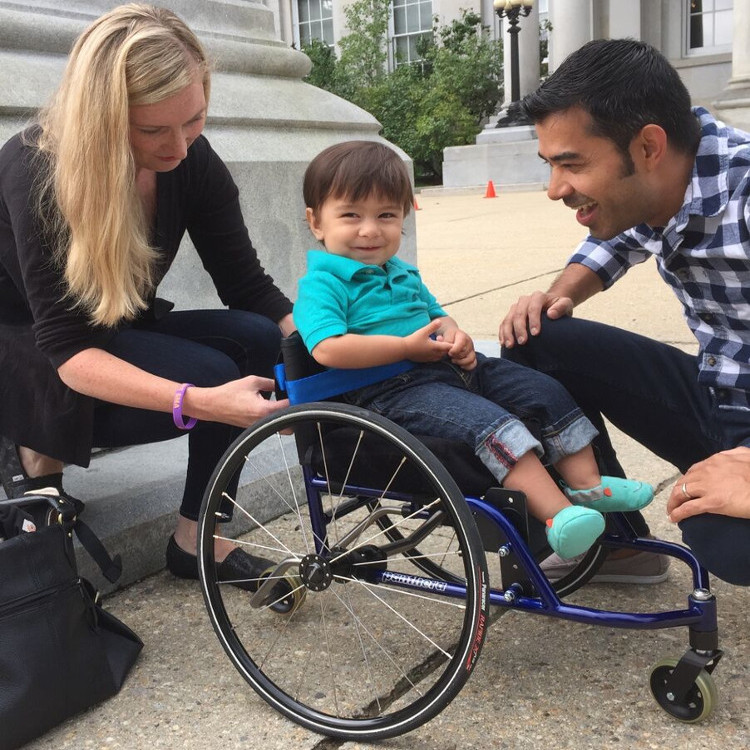
 What are neuromuscular disorders?
What are neuromuscular disorders?
Neuromuscular system comprise of all muscles and nerves of the body. These conditions impact the peripheral nervous system, which includes the muscles, neuromuscular (nerve-muscle) junction, peripheral nerves in the limbs and motor-nerve cells in the spinal cord.
 How to suspect neuromuscular problem in children?
How to suspect neuromuscular problem in children?
The following are the symptoms for neuromuscular problems.
- Weakness of any limbs or progressive walking difficulty can be due to muscle/nerve problem.
- Delay in only motor milestones with normal cognition.
- Floppy baby(i.e very loose hands and legs).
- Difficulty in sucking/swallowing from newborn period
- Drooping of eyelids and/or double vision.
- Fatigue and weakness which increase as the day progresses can be due to childhood myasthenia.
- Episodic muscle pain and cramps.

 What are different types of neuromuscular problems?
What are different types of neuromuscular problems?
There are many types and many have genetic basis, some are related to infection and immune mediated damage.
- Muscle and nerve disorders: Can present from newborn till any age. Many of them are related with genetic defects where the machinery for complete muscle and nerve development is defective due to genetic mutations. Some present due to acute infection and immune mediated damage to muscle and nerve.
Eg: Duchenne muscular dystrophy(DMD), Guillain barre syndrome(GBS), hereditary sensorimotor neuropathy(HMSN) etc - Nerve-muscle(NM junction) conduction disorder: These are due to defective signal exchange between nerve and muscle, causing episodic fatiguable weakness. These group are called myasthenia gravis. It can be congential or acquired( immune mediated).
- Spinal cord motor neuron: Damage to motor neuron can be due to genetic mutation which are called spinal motor atrophy(SMA).
- Brachial plexopathy: Seen immediately after birth as unable to move upper limb esp after difficult prolong labour. These are due to damage of cervical nerves.
 How are neuromuscular disease diagnosed? What tests are needed?
How are neuromuscular disease diagnosed? What tests are needed?
Not all children need neuroimaging(CT or MRI brain.)
It is done in following scenarios:Pediatric neurologist can advise some tests after detailed history and examination. The test are electromyography(EMG), Nerve conduction studies(NCS), Antibody titers(esp in myasthenia gravis) etc. In some cases MRI of spine may be needed to rule out look alike spinal disorders. Genetic study through the blood may be needed to confirm many neuromuscular disorders.
 How are neuromuscular disease treated?
How are neuromuscular disease treated?
It depend upon the cause of the disease. Some of them needs immunotherapy(eg Immunoglobulin and steroids), some needs high dose vitamin supplements(eg in mitochondrial myopathies). Myasthenia gravis needs separate group of medicines with immunotherapy. Many of them may not have definite treatment, hence needs supportive care.
